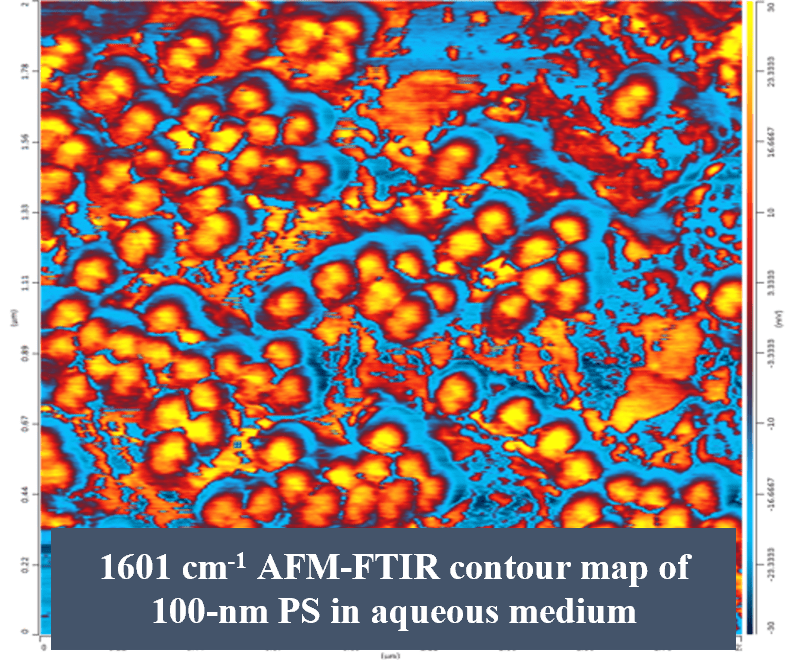We are a team of primarily undergraduate research students who share an interest in the applications of analytical chemistry to issues of environmental concern, forensic science, educational technology, and industry consulting work. Over the years, our team members have won all of the major graduate/undergraduate awards in forensic science at the national (American Academy of Forensic Sciences) and regional (Mid-Atlantic and Northeastern chapters of AAFS) levels, within the Environmental Division of the American Chemical Society, and within Penn State (the graduate and undergraduate exhibitions and various university institutes).
Chemical Education Research
Pedagogical transformation of the chemistry curriculum via the use and integration of small, mobile instruments for laboratory enhancement (SMILE). The major goal of the project is to design, develop, implement, and assess the construction and use of small-scale instruments in the chemistry curriculum at the high school and college levels. The project focuses on the use of low-cost, low-maintenance student-built instrumentation to enliven, invigorate, promote and enhance competency in STEM subject matter. The core of the proposal includes the development of materials aimed at instructing faculty and teachers in the practical implementation of scientific instrumentation, as well as modules in critical evaluation, revision and enhancement of curricular materials. The following instruments have been a part of the SMILE program over the past eleven years: NMR solid-state probe (installed in a commercial 400 MHz instrument), colorimeter, fluorometer, diamond-anvil cell (coupled to a commercial Raman), barcode scanner, GC-FID, ion chromatography instrument, dissolved oxygen probe, cyclic voltammeter, DNA oligomer sensor, UV-VIS grating-based photodiode array spectrometer, Spec 20 conversion to a scanning instrument, CE-chip, and a few others. New SMILE prototypes are in constant development.
Detection and Characterization of Nano/Microplastics in Environmental Matrices
The microplastics initiative represents the bulk of our current research activity.
- Adsorption of persistent organic pollutants and heavy metals onto the surfaces of nano/microplastic particles. The project involves the synthesis and subsequent size fractioning of PET, PP, PC, and PVC nano/microparticles followed by bulk adsorption experiments to obtain adsorption isotherms for single-component and multi-component mixtures of heavy metals, and PAH and PFAS compounds.
- Rapid real-time detection of microplastics using a flow-through cell and fluorescence microscopy. Nile Red (and other dyes) preferentially, or selectively, adsorb to the surfaces of plastic particles and demonstrate a significant red-shift in the fluorescence with type of plastic.
- FTIR (microscopy), Raman microprobe, and NTA analyses of residues produced from the physical and chemical degradation of macroplastics soaked in tap and saltwater solutions and incubated with UV lights. Sample aliquots are collected at regular time intervals to document changes in the vibrational spectra and in the number of nano/microparticles produced as a function of time.
- Isolation and characterization of microplastics in the environment. Currently we are conducting a longitudinal study of the microplastic load in the West Branch Susquehanna River from its source to outlet. Characterization requires extensive wet chemistry sample prep followed by analysis using a state-of-the-art FTIR microscope.
Detection of Environmental Contaminants via eMIPs
Synthesis, optimization, and validation of electropolymerized membrane-coated electrodes for the (indirect) detection and quantitation of PFAS and PFOS compounds in aqueous systems. The primary tool is a custom-built cyclic voltammeter.
Chromatography-based Research Applications
The principal aim of the research is to develop a suite of silane coatings (HPLC, GC, SPME) with a high-degree of selectivity towards target analytes and mixed-mode phases with broad selectivity coupled with multiple component analysis to recover individual analyte information.
Consulting
Method development and validation, diagnostic testing, and troubleshooting spectroscopic and chromatographic techniques applied to issues of environmental and forensic concern. Recent work includes: developing simple diagnostic tests for automobile coating defects, conducting performance tests on novel coatings for LC-based applications; LC method development and validation for sensitive nucleic acid moieties; testing and troubleshooting LC stationary phases; expert consultation in successful attempt by Georgia Innocence Project to overturn conviction of a client imprisoned for 40+ years; and the detection and quantification of target compounds for arson and suspicious animal death investigations, suspected drug cases, and environmental monitoring. All consulting work is performed by our research team or by students in the senior-level instrumental analysis courses, CHEM 423W (spectroscopy) and 425W (chromatography), under the supervision of Dr. Sykes. These courses are designed to provide students with hands-on training with research-grade instrumentation while working on current real-world applications.
Awards and Honors




